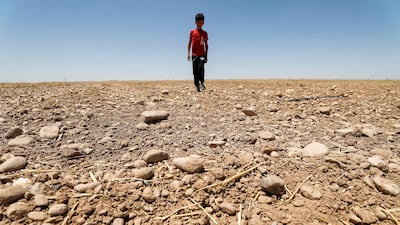Iraq will halve its cultivation area for winter crops this year, as the country tries to conserve water amid a crippling shortage that shows no sign of abating.
The decision, announced by Ministry of Agriculture after a meeting with the Minister of Water Resources on Sunday, further reduces the winter cultivation area after a similar move last year.
The reduction will be applied to the area cultivated last winter, the ministry said. It did not specify the area, but about five million dunums, or 500,000 hectares, were approved for planting last year.
The main winter crops in Iraq are wheat, barley and vegetables.
The ministry said the north-eastern province of Diyala, which suffers from acute water shortage but is heavily dependent on agriculture, was exempted from the restrictions.
Iraq has been suffering from scarcity of water in its two main sources, the Tigris and Euphrates rivers, as well as insufficient rains and high temperatures.
Water levels in these two rivers have dropped noticeably in recent years, as a result of upstream dams built by Turkey, and others constructed on their tributaries by Iran.
The water flow rate in both rivers is half of what it was at this time last year.
The water flow in the Diyala river has been cut off completely by dams in Iran, while it decreased by 70 per cent in the Lower Zab river.
Iraq has been pushing Turkey and Iran for an agreement that guarantees its fair share of water, but no progress has been made.
The Ministry of Water Resources says water flowing into Iraq has dropped to less than 50 billion cubic metres per year from a peak of nearly 80 billion cubic metres in the 1970s.


